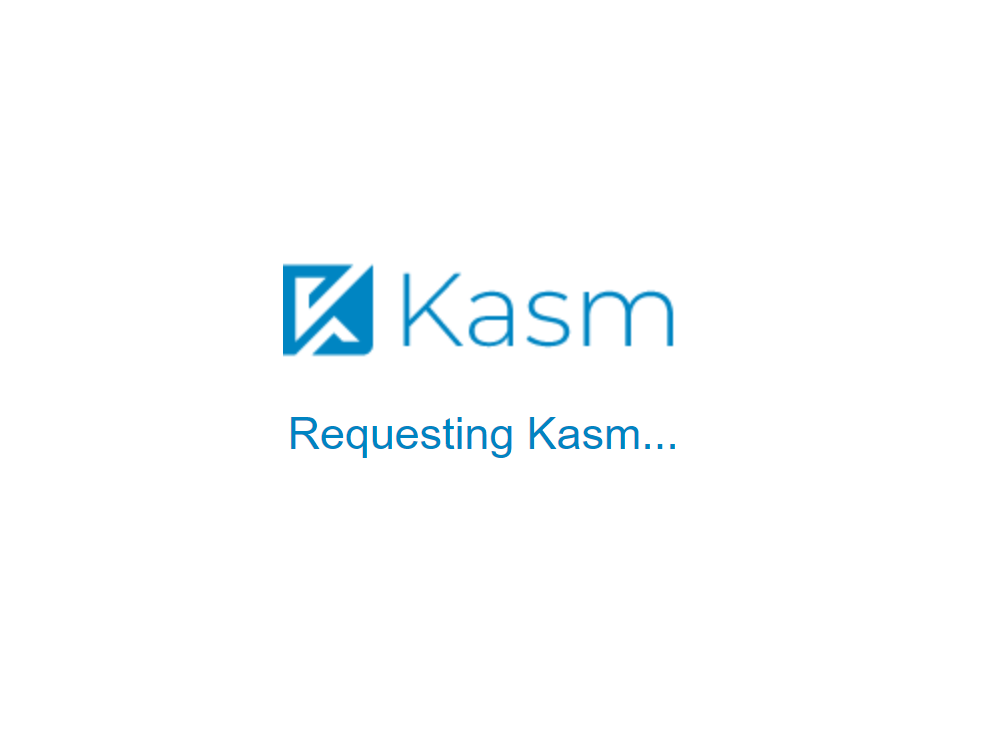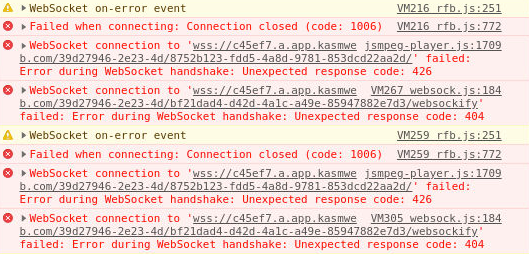Troubleshooting¶
Connection to Session Hangs - Requesting Kasm¶
When creating a new session, the Administrators can limit access to websites by defining Web Filter Policies.
Note
When troubleshooting this issue, always test by creating new sessions after making changes. Resuming a session may not have the changes applied.

Session hangs at requesting Kasm¶
Client-side issues¶
Tip
If the Kasm Server deployment is internet accessible, consider testing access via a browser using the Kasm Live Demo to help rule out client-side issues. You can sign up for the free demo at https://kasmweb.com
Disable Browser Extensions
Some browser extensions have been know to cause conflicts when making connections to Kasm Sessions. Disable any any browser extensions/add-ons that may be enabled. Avoid using “incognito” or “private-browsing” modes while troubleshooting.
Corporate Proxies - WebSockets
Some corporate proxies/firewalls and other security appliances may not support proxying WebSockets, which is needed to establish a connection to Kasm sessions. You can verify your environment supports WebSockets by visiting: https://www.websocket.org/echo.html .
You may see the UI cycle between “Requesting Kasm…” and “Connecting…” repeatedly. The following errors will repeat in the Console tab of the Develop Tools for the browser.

Session hangs at requesting Kasm¶
Server-side issues¶
Compatible Docker Version
Ensure the system is running compatible versions of
dockeranddocker-compose. See System Requirements for more details.Reverse Proxy Issues
If running Kasm behind a reverse proxy such as NGINX, please consult the Reverse Proxy Guide The reverse proxy used, must support WebSockets, and the Zone configuration must also be updated accordingly.
Name Resolution and General Connectivity
If accessing Kasm Server via DNS name, ensure the Kasm Server services can properly resolve the same address. The Kasm services must also be able to connect to user-facing address. During installation, docker will create several local sub interfaces and Kasm services are assigned addresses on those bridged networks. Ensure firewalls or security groups are not blocking access.
Conduct the following tests from the Kasm Server to ensure name resolution and general connectivity are working properly. If these items fail, correct the dns/networking/firewall issues.
# Test using the URL used to connect to the Kasm UI sudo docker exec -it kasm_proxy wget https://<your.kasm.server>:443 # Test using the IP of the Kasm Server if your deployment is using a reverse proxy. If Kasm Server was installed using a non-standard port. Specify that port here sudo docker exec -it kasm_proxy wget https://<your.kasm.server.ip>:443